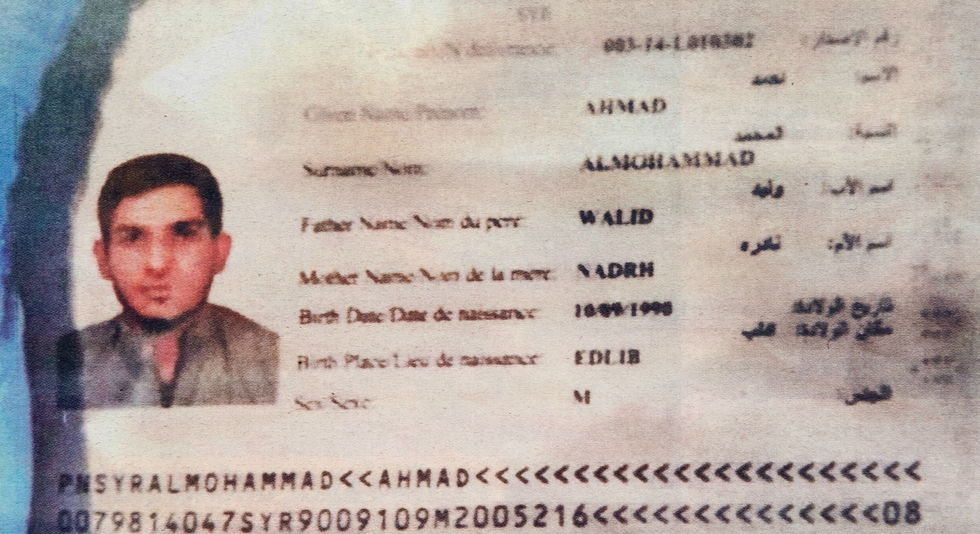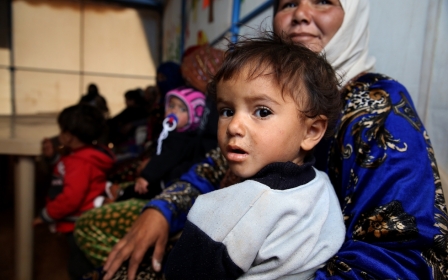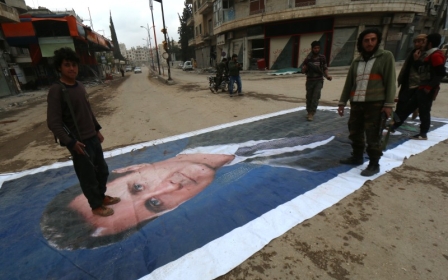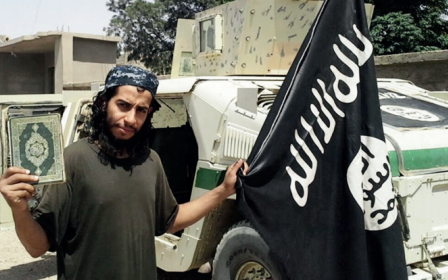Paris attacker 'stole identity of dead Syrian soldier to enter Europe'

An Islamic State suicide bomber used the identity of a dead Syrian army soldier to cross Europe and take part in attacks that killed at least 129 people in Paris, according to a report.
The AFP news agency on Tuesday reported an anonymous French investigator as saying all indications suggested that a Syrian passport found near the remains of a suicide bomber may have belonged to a soldier killed several months ago.
France on Monday had named Ahmad al-Mohammad as one of the attackers who blew themselves up outside the Stade de France on Friday.
The identification was based on the passport, which said he was born on September 10, 1990 in the Syrian city of Idlib.
The source told AFP on Tuesday that the passport was either taken from the dead man or fabricated based on a real identity.
It was registered on the Greek island of Leros on 3 October, and was seen again in Serbia and Croatia in the following days.
Both Greece and Serbia are on the Balkan refugee route, which has been used by more than 800,000 people this year to flee war in the Middle East.
Several far-right political groups across Europe have presented its discovery as an argument against allowing refugees into Europe.
France's anti-immigration Front National leader Marine Le Pen called for an "immediate halt" to new arrivals, while Germany's Pegida movement drew thousands to their latest anti-Islam rally.
But Germany's government said IS may have sought to use the passport "to politicise and radicalise the refugee question".
French Sports Minister Patrick Kanner meanwhile said Stade de France security had averted a major tragedy by preventing the bombers from getting inside.
The Stade de France was packed with 79,000 fans when three attackers blew themselves up outside the venue, killing one bystander and injuring several dozen others.
One of the attackers was reportedly stopped from entering to the stadium 15 minutes after kick-off when a security guard detected his suicide vest. The attacker blew hemself up outside the venue moments later.
Middle East Eye propose une couverture et une analyse indépendantes et incomparables du Moyen-Orient, de l’Afrique du Nord et d’autres régions du monde. Pour en savoir plus sur la reprise de ce contenu et les frais qui s’appliquent, veuillez remplir ce formulaire [en anglais]. Pour en savoir plus sur MEE, cliquez ici [en anglais].




